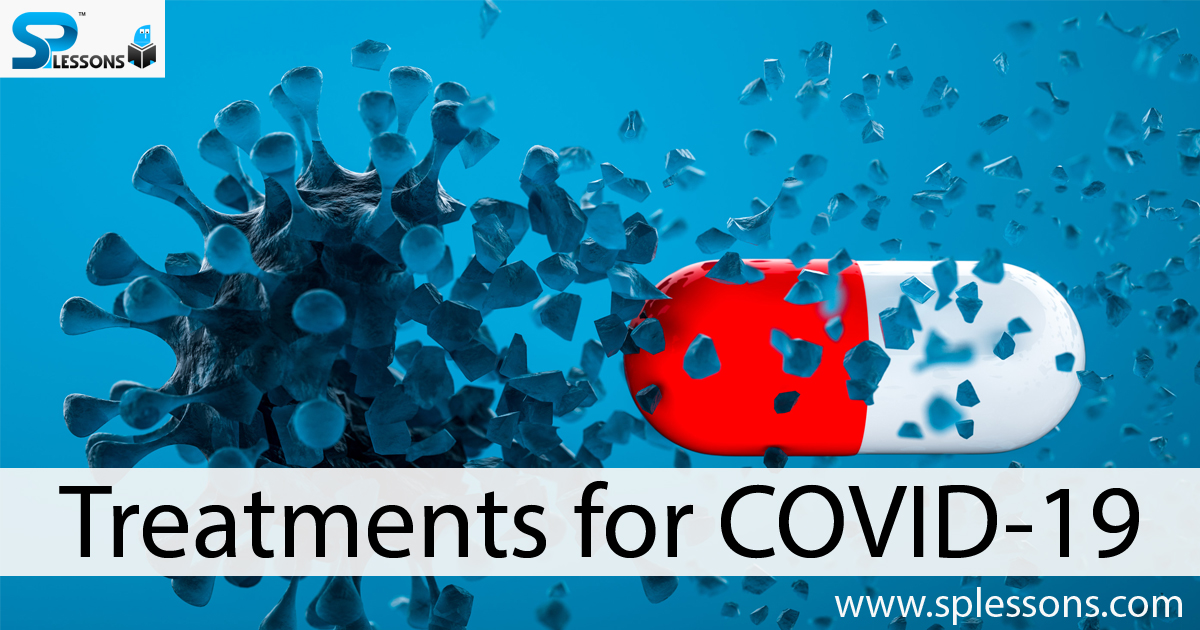 Introduction
Introduction
There is no specific Medicine to Prevent or Treat Coronavirus Disease (COVID-19). People may need Supportive Care to help them Breathe.
Self-Care
If you have mild symptoms, stay at home until you’ve recovered. You can relieve your symptoms if you
Rest and sleep
Keep warm
Drink plenty of liquids
Use a room humidifier or take a hot shower to help ease a sore throat and cough
Most people who become ill with COVID-19 will be able to recover at home. No specific treatments for COVID-19 exist right now. But some of the same things you do to feel better if you have the flu — getting enough rest, staying well hydrated, and taking medications to relieve fever and aches and pains — also help with COVID-19.
Challenge
Modi Govt Throws COVID-19 Innovation ‘Challenge’ to Indians, will Fund Winning Ideas - If you have an Idea and want to Apply Click HereDonate to PM Relief Fund for Coronavirus
 Treatments
Treatments
When people recover from COVID-19, their blood contains antibodies that their bodies produced to fight the coronavirus and help them get well. Antibodies are found in plasma, a component of blood.
Convalescent plasma — literally plasma from recovered patients — has been used for more than 100 years to treat a variety of illnesses from measles to polio, chickenpox, and SARS. In the current situation, antibody-containing plasma from a recovered patient is given by transfusion to a patient who is suffering from COVID-19. The donor antibodies help the patient fight the illness, possibly shortening the length or reducing the severity of the disease.
On March 24th, the FDA began allowing convalescent plasma to be used in patients with serious or immediately life-threatening COVID-19 infections. This treatment is still considered experimental.
In order to donate plasma, a person must meet several criteria. They have to have tested positive for COVID-19, recovered, have no symptoms for 14 days, currently test negative for COVID-19, and have high enough antibody levels in their plasma. A donor and patient must also have compatible blood types. Once the plasma is donated, it is screened for other infectious diseases, such as HIV.
Each donor produces enough plasma to treat one to three patients. Donating plasma should not weaken the donor's immune system nor make the donor more susceptible to getting reinfected with the virus.
Some French doctors advise against using ibuprofen (Motrin, Advil, many generic versions) for COVID-19 symptoms based on reports of otherwise healthy people with confirmed COVID-19 who were taking an NSAID for symptom relief and developed severe illness, especially pneumonia. These are only observations and not based on scientific studies.
The WHO initially recommended using acetaminophen instead of ibuprofen to help reduce fever and aches and pains related to this coronavirus infection, but now states that either acetaminophen or ibuprofen can be used. Rapid changes in recommendations create uncertainty. Since some doctors remain concerned about NSAIDs, it still seems prudent to choose acetaminophen first, with a total dose not exceeding 3,000 milligrams per day.
However, if you suspect or know you have COVID-19 and cannot take acetaminophen, or have taken the maximum dose and still need symptom relief, taking over-the-counter ibuprofen does not need to be specifically avoided.





